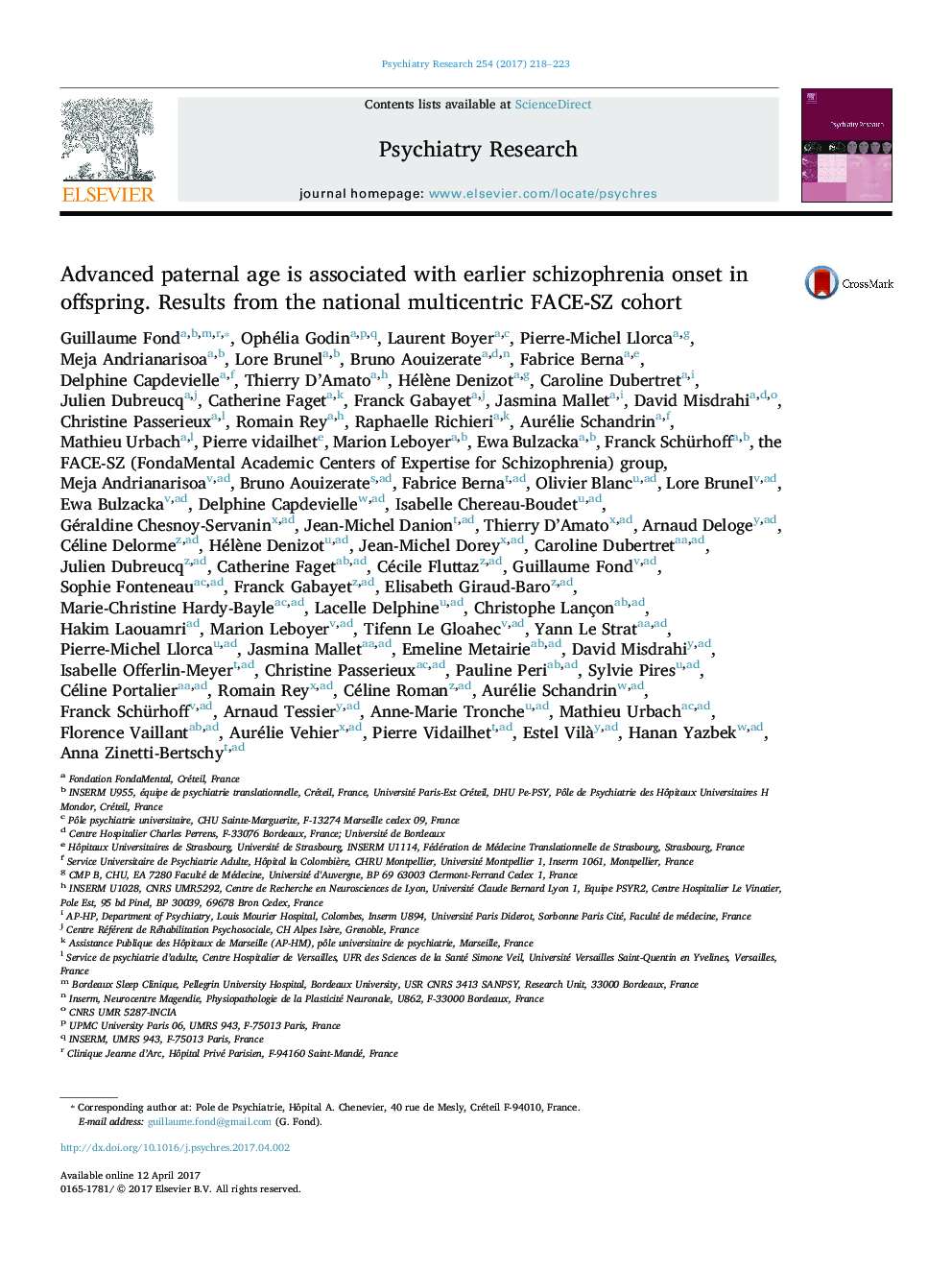| Article ID | Journal | Published Year | Pages | File Type |
|---|---|---|---|---|
| 4933141 | Psychiatry Research | 2017 | 6 Pages |
The association between advanced paternal age (APA) and increased risk of schizophrenia (SZ) is well established. The objectives of the present study were to further determine if SZ participants with APA (APA+), versus those without (APA-), had: (i) different illness characteristics; (ii) different responses to antipsychotic medication; and (iii) different cognitive characteristics. Participants were a non-selected representative multicentric sample of stabilized community-dwelling people diagnosed with SZ included in the FACE-SZ cohort. 389 participants (73% males, mean aged 32.7 years, mean illness duration 10.8 years) formed the study sample, with each comprehensively evaluated, clinically and neuropsychologically, over 2 days. 118 participants (30.3%) were defined as APA+ according to their father's age at birth (â¥35 years). APA+ was associated with a wide range of cognitive dysfunctions in univariate analyses. In multivariate analyses, the only significant difference was the age at onset, with a mean 1.6 year earlier in APA+, compared to APA- (20.7 vs. 22.3 years; p=0.02). This difference is independent of sociodemographic characteristics and I.Q. No association with clinical symptomatology and treatment response was found. The present study supports the neomutation hypothesis and confirms APA as a relevant clinical variable to discriminate potential schizophrenia subtypes. Potential underlying pathophysiological mechanisms are discussed.
